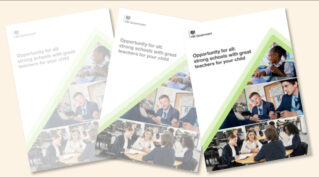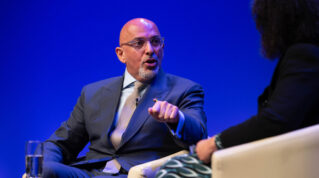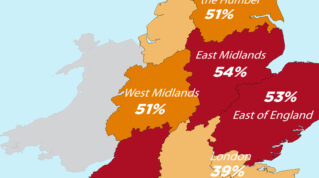“What I am saying today is, to parents […] if your child starts to fall behind, we should step in straight away and give one-to-one or small-group tuition,” said the secretary of state for education, launching his white paper.
“Any primary pupils falling behind will have an entitlement to ten hours of one-to-one tuition. For those who are behind at the start of secondary school, we will now guarantee catch-up tuition in Year 7,” announced the formal document. The government’s ‘parent guarantees’ will be a central plank of the government’s election-winning offer.
The year is 2009. The government, Labour. The secretary of state, Ed Balls. I am a 27-year-old policy adviser in Number 10 helping to draft said document.
It’s an interesting question as to whether these echoes reflect today’s Conservatives tacking left, or whether in retrospect it was more remarkable than first noticed that Balls and Brown could front a document that would be wholly acceptable to Boris Johnson’s Tories 13 years on. But political déjà-vu notwithstanding, the most important element for me about this week’s white paper is that all politicians come to the same two realisations about education policy in quick succession.
The first is that parents matter. We all know this, of course. There’s not a single Schools Week reader working in a school that can’t rattle off 20 things they’re doing to boost parental engagement. Indeed, the common refrain about the new ‘Parent Pledge’ from the shadow education secretary Bridget Phillipson and legions of disgruntled edu-Tweeters is that it’s nothing more or less than what most schools are doing anyway.
But the truth is that when viewed from the other side, many schools are insufficiently responsive in parents’ eyes.
Many schools are insufficiently responsive in parents’ eyes
Public First do a huge amount of qualitative research with parents. Almost every single one wants to help their children in any way they can. They mostly trust their schools implicitly – especially at primary. But probe underneath the surface, and many of them will say – almost embarrassed – that they often don’t really know how their child is doing, or what they can do to help. They don’t want to replace the school. They trust teachers. But they want to understand what’s going on and be a partner in making it better.
Last year’s tuition policy was the best-received announcement I’ve ever seen. It seemed to tick every box, and it is this central insight that the government is working with today. So whether you view this cynically as a way of tapping into parents as voters, or whether you view it through the prism that it really does drive pupil results, almost all secretaries of state come round to the view that parents matter.
And this is where they quickly come to their second realisation: parent policy is hard. The DfE doesn’t have levers like it does with schools. They can show and ask and nudge. But often, government comes up with policies that are either good-but-obvious (read to your children, feed them fruit not chocolate), or hard-edged but focused on a very small number of families (parenting contracts, fines or multi-agency support for the most troubled).
In 2009, we had plans for a legally enforceable guarantee. Looking back through the white paper, we promised formal recourse to the Local Government Ombudsman to make binding recommendations for remedy if the school was not meeting its requirements to parents (including around tuition).
I am very glad this never came to pass. It seems to me that today’s approach is a better one. Yes, there’s no enforcement mechanism. But overall, setting an expectation – which may indeed be what already happens in the vast majority of schools – that parents are entitled to know regularly how well their child is performing, and that there are options open to them for help (including tutoring) seems a sensible approach.
A ‘Parent Pledge’ may sound gimmicky. But the central observation made by Nadhim Zahawi – that it is only through collaboration between parents, schools and young people that real progress is made – is right. I hope schools and parents engage with it in the way it is intended.
















Your thoughts